Is It Bad to Use Essential Oils Everyday
Essential oils have gained popularity for their wide range of benefits, from promoting relaxation to boosting the immune system.
But is it safe to use essential oils every day? We will explore the advantages and potential risks of incorporating essential oils into your daily routine.
We will also discuss the recommended ways to use essential oils safely and highlight some of the bad essential oils to include in your everyday routine.
Key Takeaways:
What Are Essential Oils?
Essential oils are highly concentrated oils extracted from plants through distillation or other methods. They capture the plant’s scent, flavor, and beneficial compounds, making them potent and versatile for various applications.
The extraction process of essential oils involves specialized techniques that vary based on the plant type. Common methods include steam distillation, cold pressing, or solvent extraction. Different plants yield different concentrations and types of essential oils, each carrying unique aromatic properties and potential health benefits. Plants like lavender, peppermint, eucalyptus, and tea tree are popular choices for extracting essential oils due to their therapeutic properties. Extracted oils are used in aromatherapy, skincare, natural cleaning products, and even culinary applications, harnessing the plants’ natural and botanical origins for holistic well-being.
How Are Essential Oils Used?
Essential oils can be used through inhalation, skin application, and diffusion methods. Inhalation involves breathing in the aroma directly or through a diffuser, while skin application allows absorption through massage or topical use.
Diffusion is another common method of using essential oils, where the oils are dispersed into the air using a diffuser, creating a pleasant and therapeutic atmosphere. This method is popular for its ability to provide continuous and long-lasting benefits throughout a room or space.
Essential oils can be diluted in carrier oils for skin application to ensure safe and effective use, especially for sensitive skin types. Whether inhaled, applied to the skin, or diffused, essential oils offer a versatile and natural way to promote well-being and relaxation.
What Are the Benefits of Using Essential Oils Everyday?
Using essential oils daily can promote overall health and wellness by affecting mood, sleep quality, and immune system function. These oils have a range of effects that contribute to a holistic approach to well-being.
Essential oils are extracted from plants and contain various natural compounds that offer a plethora of benefits. From lavender to peppermint and eucalyptus, each oil carries unique properties that can be harnessed for different purposes.
For example, inhaling lavender essential oil can help reduce stress and improve relaxation, while how bad essential oils possesses antibacterial properties that support skin health.
Incorporating essential oils into daily routines can also enhance cognitive function, boost energy levels, and alleviate aches and pains, providing a natural alternative for overall wellness.
Promotes Relaxation and Reduces Stress
One of the key benefits of using essential oils daily is their ability to promote relaxation, reduce stress levels, and enhance mood. Oils like lavender and chamomile are known for their calming effects.
Furthermore,
- bergamot oil, with its citrusy and slightly floral scent, is also a popular choice for relaxation. Its mood-enhancing properties can help alleviate anxiety and promote a sense of well-being.
- ylang ylang oil, known for its sweet, floral fragrance, is often used to reduce stress and uplift the spirit.
These essential oils can be diffused in a room, added to bathwater, or even used in massages to create a tranquil atmosphere that encourages relaxation. Incorporating these oils into your daily routine can lead to a more peaceful and harmonious state of mind.
Boosts Immune System
Incorporating essential oils into daily routines can help boost the immune system’s function and support overall health and wellness. Oils like tea tree and eucalyptus have antimicrobial properties that aid in immune defense.
Not only do essential oils provide a natural and aromatic way to enhance the body’s defenses, but they also offer a range of additional benefits. For example, lavender oil is known for its calming effects, helping to reduce stress levels, which can indirectly support immune health. Similarly, lemon oil is rich in antioxidants that combat free radicals, further strengthening the body’s resilience.
Improves Sleep Quality
Using essential oils daily can improve sleep quality by promoting relaxation and creating a conducive environment for rest. Lavender oil is particularly renowned for its sleep-inducing properties.
Aside from lavender oil, other essential oils such as chamomile, valerian, and cedarwood can also play a significant role in enhancing sleep quality. These oils work by calming the mind and body, reducing stress and anxiety levels, and preparing the brain for a restful night’s sleep.
The process of inhaling these soothing scents triggers the release of neurotransmitters like serotonin and dopamine, which contribute to a deeper and more rejuvenating sleep cycle. Incorporating a few drops of these oils into a diffuser or applying them topically before bedtime can help create a bedtime ritual that signals to the body that it’s time to unwind and prepare for sleep.
Relieves Pain and Inflammation
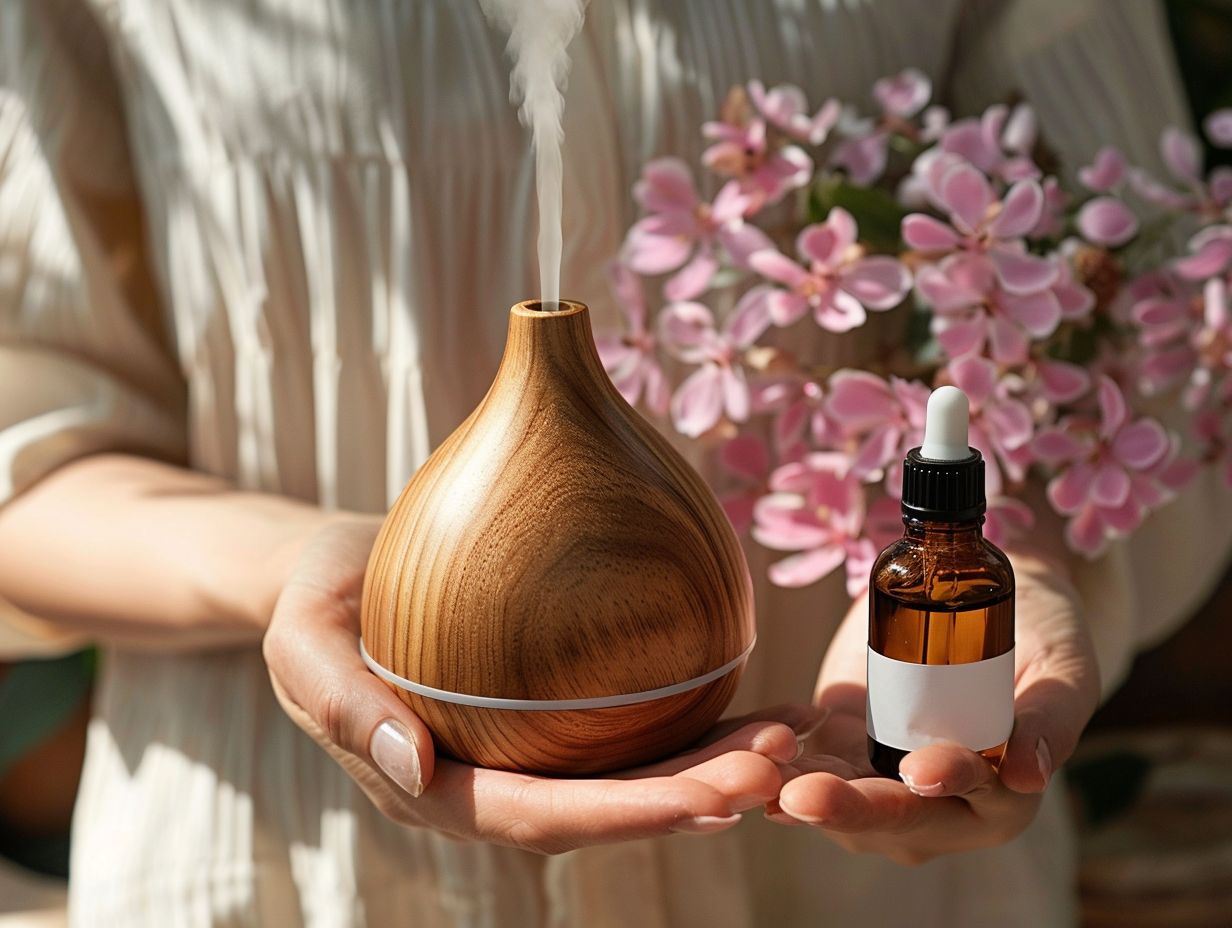
Essential oils offer natural relief from pain and inflammation when used daily. Oils such as peppermint and eucalyptus have analgesic and anti-inflammatory properties that can alleviate discomfort.
Peppermint oil, known for its cooling effect, can help reduce muscle aches and headaches.
Eucalyptus oil, with its anti-inflammatory properties, is commonly used to alleviate joint pain and inflammation.
Lavender oil, another popular choice, not only acts as a mild pain reliever but also promotes relaxation, aiding in overall stress reduction.
Frankincense oil has been praised for its ability to help manage chronic pain, making it a valuable addition to pain-relieving blends.
What Are the Potential Risks of Using Essential Oils Everyday?
While essential oils offer numerous benefits, there are potential risks associated with daily use. These risks include skin irritation, allergic reactions, respiratory problems, and hormonal imbalances if not used with caution.
One crucial aspect to consider when using essential oils on a regular basis is the importance of proper dilution. Essential oils are highly concentrated substances that can be too potent when applied directly to the skin or inhaled in large amounts. Diluting them with carrier oils such as coconut, almond, or jojoba oil can help reduce the risk of adverse reactions.
It’s vital to be aware of individual sensitivities. What works well for one person may trigger negative effects in another. Testing a small amount of diluted oil on a small patch of skin and observing for any adverse reactions before widespread use is a recommended practice.
Skin Irritation
One of the common risks of using essential oils daily is skin irritation, especially for individuals with sensitive skin or allergies. Patch testing and proper dilution are crucial to prevent adverse reactions.
When applying an essential oil topically, it’s important to remember that these potent extracts can be too strong for direct application on the skin, leading to redness, itching, or even blisters in some cases.
Therefore, diluting the oil with a carrier oil like coconut, almond, or jojoba oil is recommended to lessen the risk of irritation. Is essential oils dangerous for everyday use?
Performing a patch test before using any new essential oil can help assess potential sensitivities and avoid more severe allergic reactions that could result in dermatitis or other skin issues.
Allergic Reactions
Using essential oils daily may trigger allergic reactions in some individuals, leading to adverse symptoms such as redness, itching, or swelling. It is essential to be aware of potential allergens in specific oils.
When exposed to an allergen in essential oils, the immune system may react by releasing histamines, causing skin irritation or respiratory issues. Allergic reactions can vary in severity, ranging from mild discomfort to life-threatening situations. Common symptoms include rash, hives, runny nose, or even difficulty breathing. Identifying the specific oil or ingredient that triggers the reaction is crucial to avoid future incidents.
Respiratory Problems
Inhaling essential oils daily can pose risks of respiratory problems, especially for individuals with underlying respiratory conditions. Proper ventilation and moderate use are essential precautions to prevent adverse effects.
When diffusing essential oils, make sure to dilute them properly using carrier oils to avoid irritation or overwhelming the respiratory system. Always read labels and follow recommended dosages to prevent over-exposure. Some individuals may be more sensitive to certain oils, so being aware of respiratory sensitivities is crucial. If you experience any discomfort, such as coughing or shortness of breath, discontinue use immediately and seek medical advice.
Hormonal Imbalance
Using essential oils daily can impact hormonal balance by affecting the endocrine system and gland functions. Certain oils may interfere with hormone levels, leading to imbalances if not used cautiously.
Essential oils, although natural, are powerful substances that have the potential to disrupt the delicate balance of hormones in the body. Some oils, such as lavender and tea tree, contain compounds that act similarly to estrogen, which can affect estrogen-sensitive systems. This mimicry can confuse the body’s hormonal signaling, leading to irregularities in the endocrine system.
Improper use of essential oils may also disturb the cortisol levels, a key stress hormone produced by the adrenal glands. Oils like clary sage and peppermint can either stimulate or inhibit cortisol production, depending on the individual’s body chemistry, thus impacting the body’s stress response.
What Are the Recommended Ways to Use Essential Oils Everyday?
To use essential oils daily safely and effectively, it is recommended to dilute them with carrier oils, practice inhalation techniques, apply topically with caution, and consider internal consumption only under expert guidance.
When diluting essential oils, the general rule of thumb is to use 1-2 drops of essential oil per teaspoon of carrier oil for topical application. This helps prevent skin irritation or sensitization. For inhalation, you can add a few drops to a bowl of hot water or use a diffuser to disperse the aroma gently. When applying topically, always do a patch test first to check for any adverse reactions. Ingestion of essential oils should be approached with extreme care, and it is highly advisable to consult with a qualified aromatherapist or healthcare professional before doing so.
Dilution with Carrier Oils

When using essential oils for skin care, understanding proper dilution methods is essential to avoid adverse reactions. Carrier oils such as coconut, jojoba, or almond oil serve as mediums to make the application safer and milder on the skin. Mixing a few drops of essential oil with a larger amount of carrier oil helps to reduce the concentration and potential skin irritation. Experts recommend dilution ratios of around 2-3% for most essential oils, depending on the specific oil and the individual’s skin sensitivity.
Before trying a new essential oil or even a different dilution ratio, it is advisable to perform a patch test. This involves applying a small amount of the diluted mixture on a small area of skin and observing for any adverse reactions over the next 24 hours. Patch tests help identify potential allergies or sensitivities before using the oil more extensively, reducing the risk of severe skin issues.
Inhalation
Inhalation of essential oils through steam inhalation or diffusers can offer respiratory benefits and promote well-being. Proper ventilation and limited exposure are key for safe inhalation practices.
Steam inhalation involves adding a few drops of essential oil to hot water and inhaling the steam, which can help clear congestion and soothe respiratory issues.
With diffusers, oil molecules are dispersed into the air, providing continuous benefits when inhaled. It’s essential to choose high-quality, pure oils and follow recommended dilution ratios. In terms of safety, it’s crucial to avoid direct contact with the eyes or skin and ensure proper ventilation in the room to prevent overpowering scents.
Topical Application
Topical application of essential oils on the skin can provide localized benefits, but caution is necessary to avoid skin reactions or allergies. It is essential to dilute oils and perform a patch test before widespread use.
Essential oils are potent natural extracts that can offer a wide range of therapeutic effects when used properly. When applying them topically, ensuring proper dilution is crucial to prevent skin irritation or sensitization. Conducting a patch test on a small area of skin before full application helps identify any potential adverse reactions. Each individual’s skin sensitivity varies, so understanding how your skin reacts to different oils is key in creating a safe and effective topical regimen.
Internal Consumption (With Caution)
Internal consumption of essential oils should be approached with caution and under expert guidance. Diluting oils in water or using them in cooking should be done sparingly and with awareness of potential risks.
Experts recommend consulting a qualified aromatherapist or healthcare provider before ingesting essential oils, as they are highly concentrated extracts that can have adverse effects if not used correctly. Proper dilution techniques, such as mixing oils with a carrier oil or dispersing them in a beverage, are essential to minimize the risk of irritation or toxicity. When incorporating essential oils into food or drinks, it is crucial to use only therapeutic-grade oils from reputable sources to ensure purity and safety.
What Are the Best Essential Oils to Use Everyday?
Several essential oils are ideal for daily use due to their versatile benefits and therapeutic properties. Lavender, peppermint, lemon, and tea tree oils are among the top choices for everyday applications.
Lavender oil, known for its calming and relaxing effects, is perfect for promoting a sense of tranquility and aiding in stress relief. Its soothing aroma can help alleviate anxiety and improve sleep quality.
Is it safe to wear essential oils, Peppermint oil, with its invigorating properties, is great for boosting energy and improving focus. A few drops of this refreshing oil can uplift your mood and sharpen your concentration.
Lemon oil is valued for its cleansing and purifying benefits, making it an excellent choice for household cleaning and freshening the air. Its bright, citrusy scent can also enhance mood and mental clarity.
Tea tree oil, renowned for its antimicrobial and antiseptic qualities, is a natural choice for treating skin issues like acne and promoting overall skin health. Its purifying properties make it a versatile oil for skincare and household use.
Lavender Oil
Lavender oil is a popular essential oil known for its calming aroma and versatile benefits in aromatherapy. It promotes relaxation, reduces stress, and can enhance sleep quality.
Studies have shown that the scent of lavender can help lower heart rate and blood pressure, making it an excellent choice for those looking to unwind after a long day. Along with its calming properties, lavender oil can also aid in reducing symptoms of anxiety and improving overall mood. By incorporating lavender oil into your bedtime routine, you can create a soothing environment that promotes a restful night’s sleep. Whether diffused in the air or applied topically, this essential oil offers a natural way to support relaxation and well-being.
Peppermint Oil
Peppermint oil is known for its invigorating aroma and beneficial properties for digestion and respiratory health. It can help boost energy levels, aid in digestion, and promote respiratory wellness.
The refreshing scent of peppermint oil has been shown to reduce feelings of nausea and indigestion, making it a popular choice for alleviating stomach discomfort. Its natural analgesic properties can also help relieve tension headaches when applied topically. In terms of respiratory health, inhalation of peppermint oil can help clear congestion and soothe irritated airways, providing relief from symptoms of colds and allergies. With its antimicrobial properties, peppermint oil can also act as a natural bug repellent, making it a versatile and beneficial essential oil to have on hand.
Lemon Oil
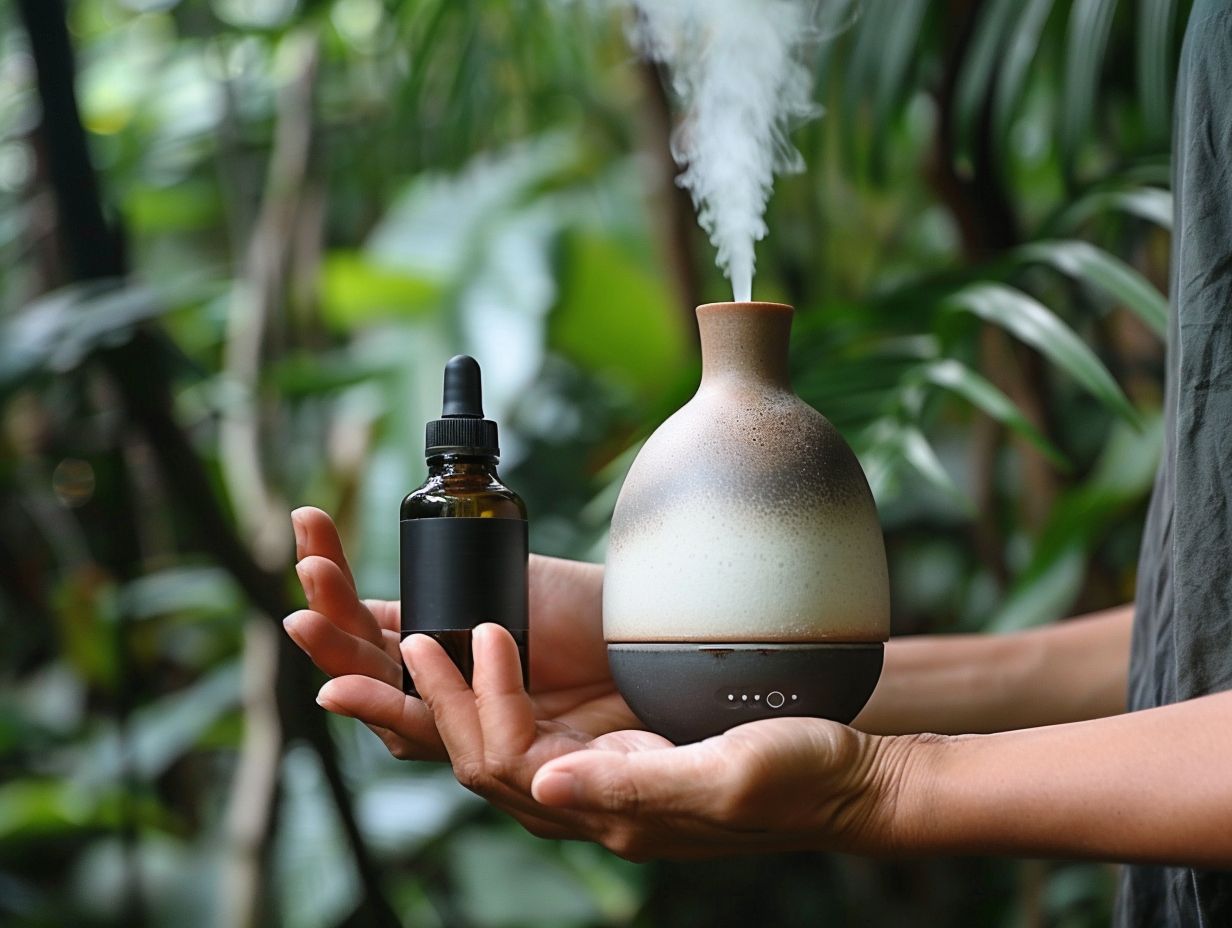
Many people incorporate lemon oil into their cleaning routine due to its natural antibacterial and antiviral properties. The fresh citrus scent not only eliminates odors but also promotes a sense of clarity and energy.
When diffused, lemon oil can help improve concentration and mental alertness, making it a great choice for work or study environments. Its immune-strengthening benefits make it a valuable ally during cold and flu season.
Tea Tree Oil
Tea tree oil is a versatile essential oil with potent antimicrobial properties and benefits for skincare. It can help combat acne, soothe skin irritations, and support overall skin health.
Due to its natural antibacterial and antifungal properties,
tea tree oil is commonly used in skincare products such as cleansers, serums, and spot treatments. Its ability to target bacteria and reduce inflammation makes it a popular choice for treating various skin conditions.
When applied topically, tea tree oil can help regulate oil production, reduce breakouts, and promote a clear complexion. Its soothing properties make it a gentle yet effective option for individuals with sensitive skin.
Frequently Asked Questions
Is it safe to use essential oils every day?
It depends on the individual and the specific essential oil. Some oils may be safe for daily use, while others may need to be used less frequently. It’s important to research and consult with a healthcare professional before using any essential oil on a daily basis.
What are the potential risks of using essential oils every day?
Using essential oils every day can potentially lead to skin irritation, allergic reactions, and even interaction with certain medications. It’s important to dilute oils properly and do a patch test before using them on a daily basis.
Can essential oils lose their effectiveness if used every day?
Yes, using essential oils every day can lead to desensitization and reduce their effectiveness. It’s recommended to take breaks from using oils to give your body a chance to reset and respond properly to their effects.
Are there any age restrictions for using essential oils every day?
Yes, some essential oils may not be safe for children, pregnant or breastfeeding women, or individuals with certain health conditions. Always check the safety guidelines for each oil before using it daily.
Can using essential oils every day cause addiction?
No, essential oils are not addictive. However, relying on essential oils as a sole treatment for a health condition without consulting a healthcare professional may lead to dependence and delay proper medical care.
Is using essential oils every day necessary for their benefits?
No, essential oils can still provide benefits even if used on a less frequent basis. It’s important to listen to your body and adjust usage accordingly. Remember, less is often more when it comes to essential oils.

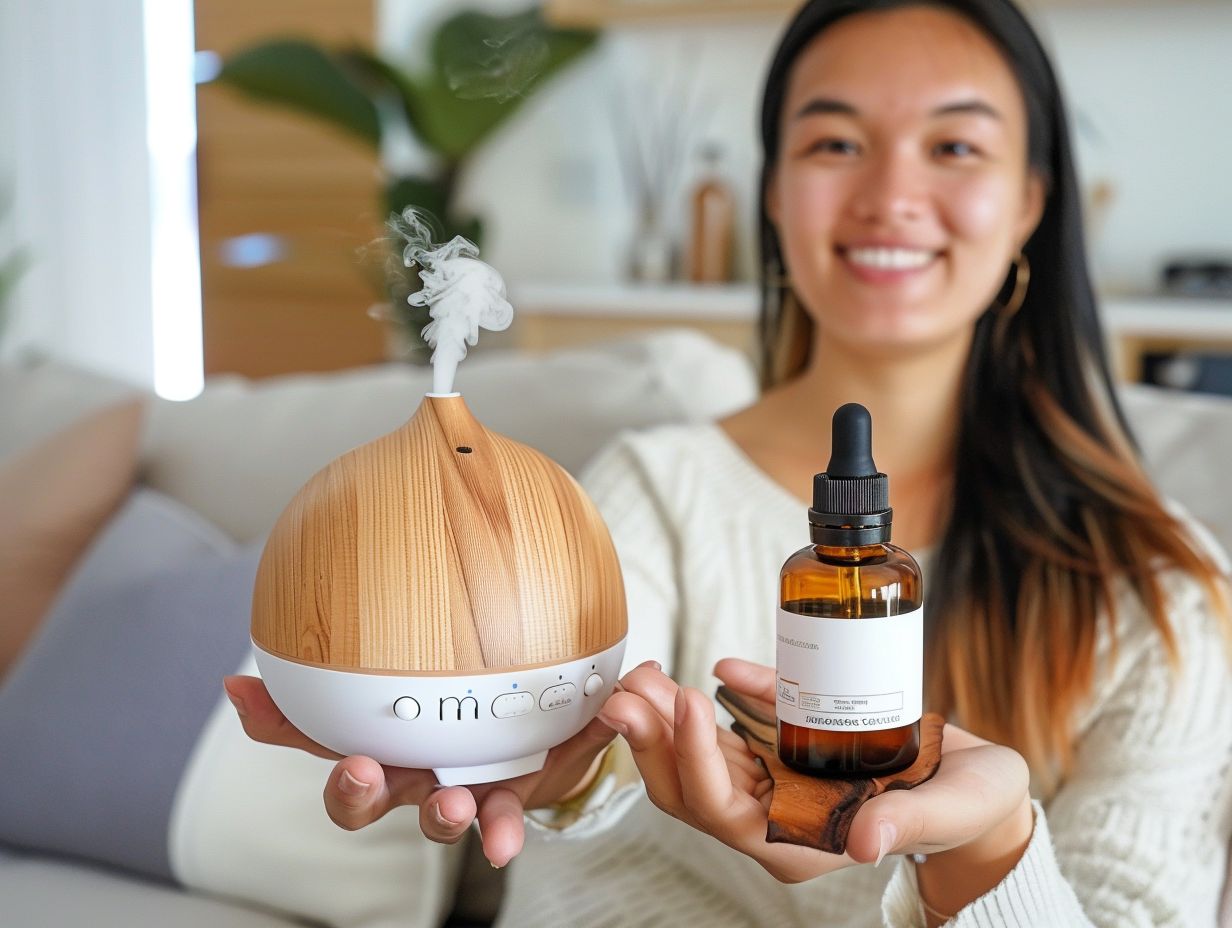

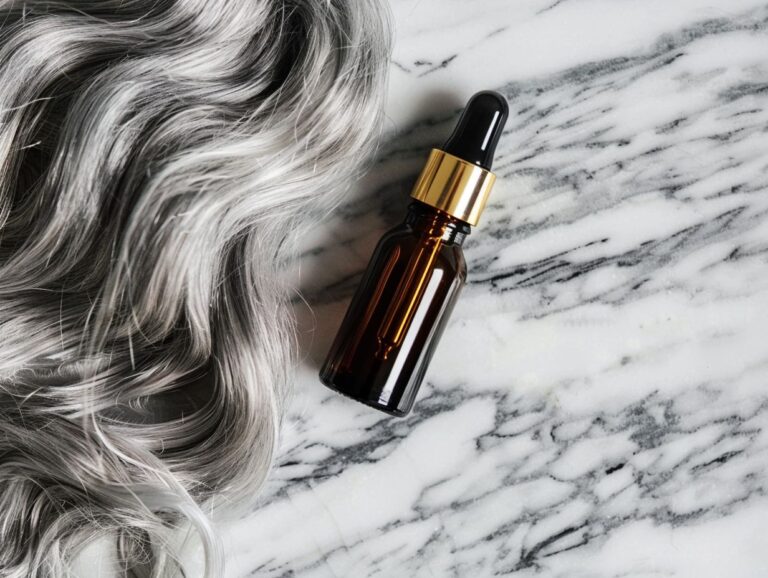
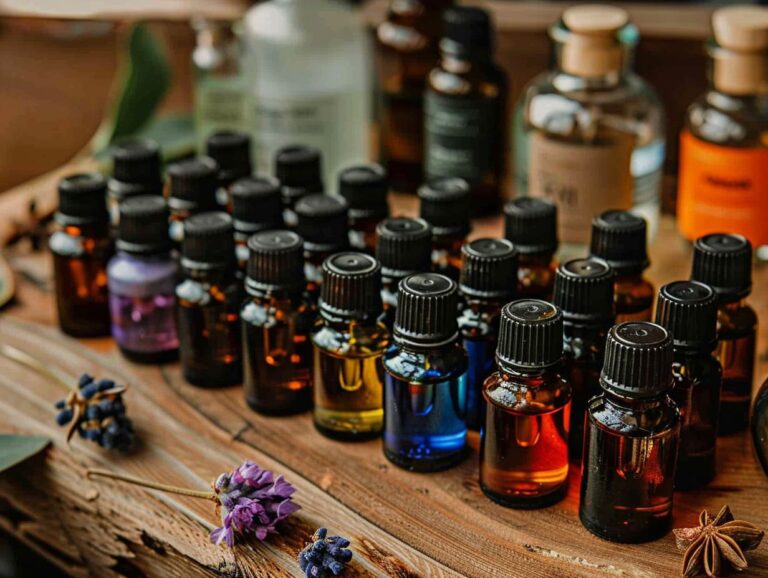
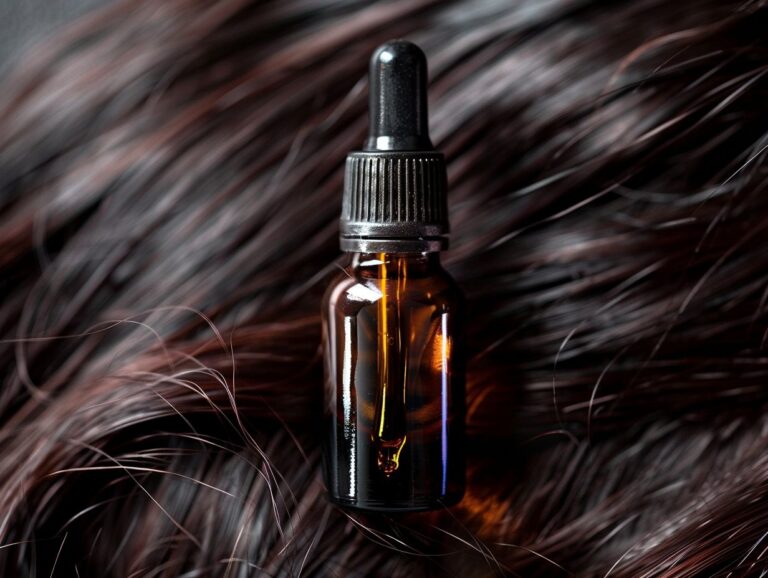
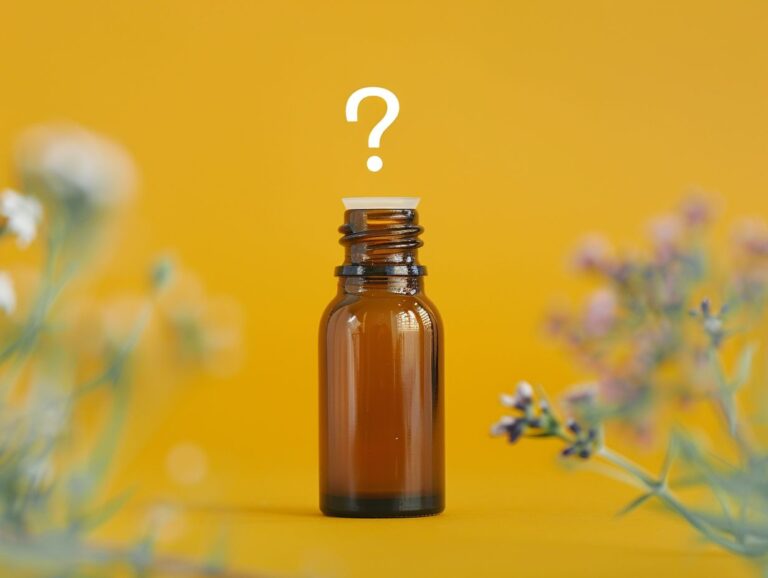
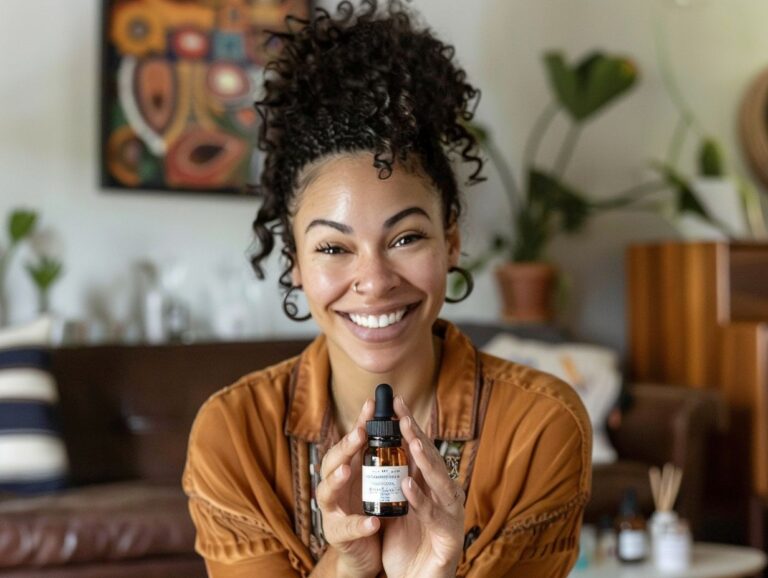
One Comment